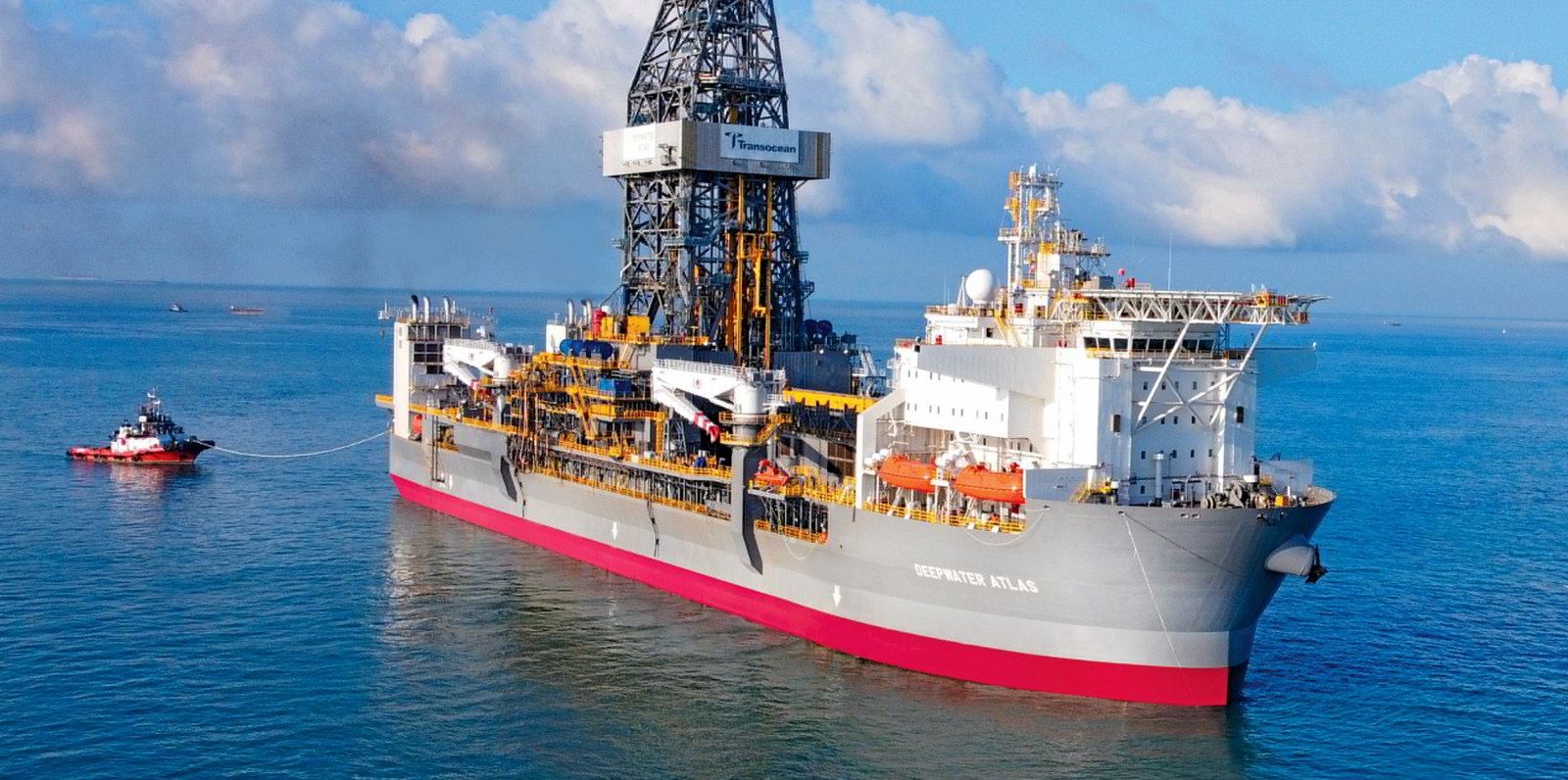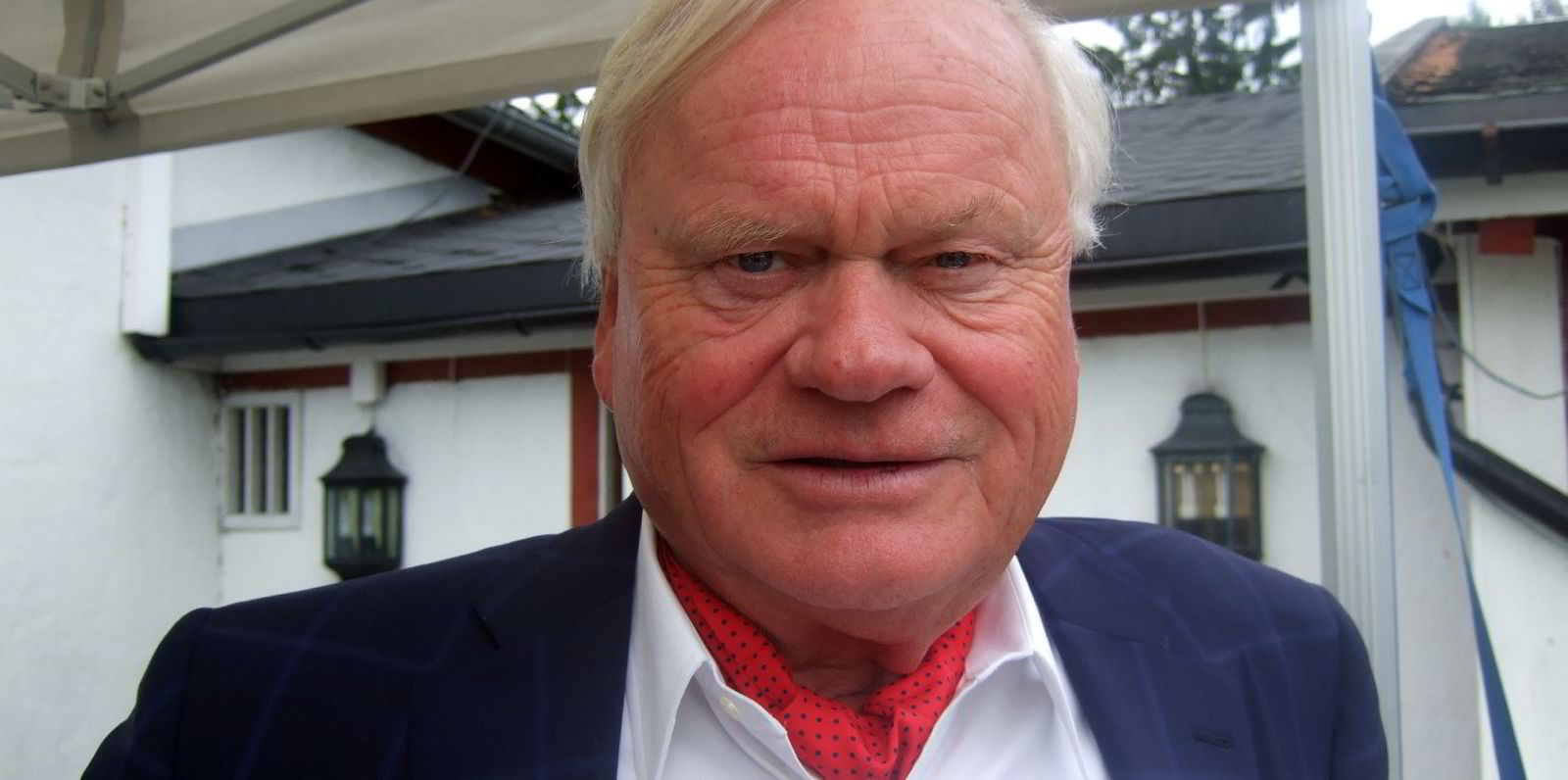Frederik Mohn has teamed up with a US private equity firm to buy an unwanted drillship newbuilding ordered by John Fredriksen at Daewoo Shipbuilding & Marine Engineering.
The tie-up between Mohn’s investment vehicle Perestroika and Lime Rock Partners has agreed to pay $200m for Hull No 3623, formerly known as the West Aquila.
Drilling rig giant Transocean said it has made a $15m non-controlling investment in the joint venture, which is called Liquila Ventures.
The Swiss-based driller said it maintains the exclusive right to market and manage the operations of the rig, which is expected to be delivered from DSME in the third quarter of 2023.
Hull No 3623 is a high-specification, 1,400-short-ton hookload ultra-deepwater drillship. The seventh-generation dual-activity drillship will have a large deck space and high load capacities, and be dual-stack ready.
The West Aquila was originally ordered by Fredriksen’s Seadrill in July 2013 as part of a two-ship deal worth more than $1bn, but was later cancelled due to Seadrill’s restructuring.
In May 2018, Fredriksen-backed Northern Drilling agreed to acquire the West Aquila and sister rig West Libra for $296m per unit, with $90m paid at the contract signing.
However, this deal collapsed in August 2021 when the Oslo-listed distressed asset play specialist called off the deal for the West Libra due to a delay in delivery from the South Korean shipyard, as well as a repudiatory breach of contract.
DSME is also believed to still be looking to find a solution for two drilling rigs ordered in 2013 by Valaris, once the world’s largest offshore drilling contractor, at a cost of $1.2bn.
Valaris has options to take delivery of both rigs by the end of 2023 for purchase prices of $218m and $119m, assuming a 31 December 2023 delivery, the company said in its most recent fleet status report.
Offshore drilling has been in a slump since 2015 due to a slide in oil prices, leading to a string of contract cancellations that haunt the South Korean shipbuilding industry to this day.
However, improving sentiment in the offshore market means the long-standing overhang of “stranded” drilling assets are now finding employment, much to the relief of the shipyards that built them.
Even before the Russia-Ukraine conflict, which sent oil prices over $100 per barrel, the macroeconomic situation had become more supportive as prices rose above $70 per barrel by mid-2021, according to a report by Clarksons in the summer.
“Several offshore sectors now look very short of ‘hot’ supply, notably drillships, where availability is down 75% from the start of 2021,” the shipbroker said.
South Korean yards have also been able to shift assets off their books with a little creativity, such as a deal by Samsung Heavy Industries, which secured a two-year bareboat charter with purchase option for a cancelled drillship newbuilding in a deal with Italy’s Saipem.





